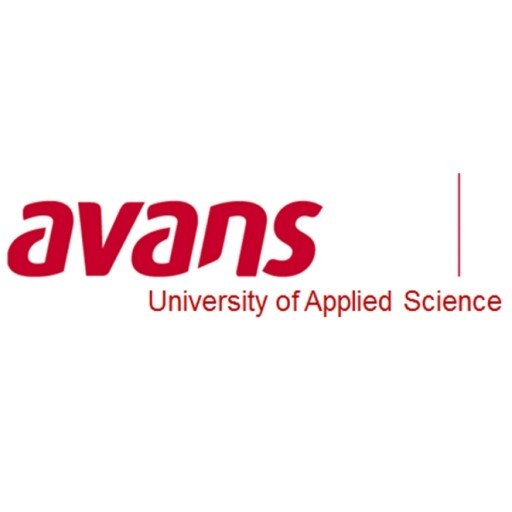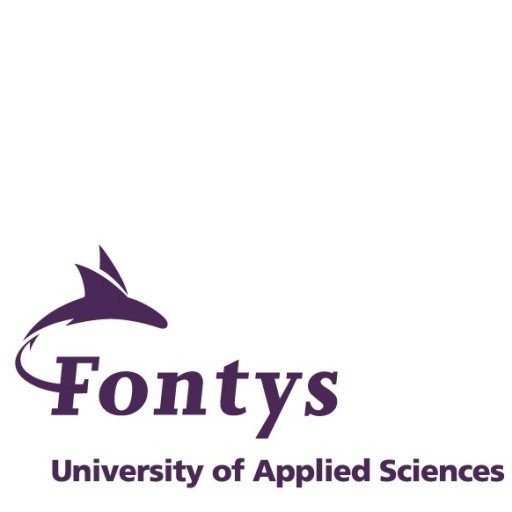Photos of university / #dehaagsehogeschool
The Bachelor of Science in Industrial Engineering and Management at The Hague University of Applied Sciences offers a comprehensive education designed to prepare students for a dynamic and competitive global industry. This program combines technical engineering skills with essential management principles, enabling graduates to effectively optimize complex processes, improve operational efficiency, and develop innovative solutions for various industrial sectors. Throughout the course, students will gain a solid foundation in core engineering disciplines such as systems analysis, operations management, supply chain logistics, quality control, and production planning. Additionally, the program emphasizes leadership, project management, entrepreneurship, and sustainable development, ensuring that graduates are equipped to meet current and future challenges in the industrial and technological landscape.
The curriculum integrates theoretical knowledge with practical application through case studies, project work, internships, and collaborations with industry partners. Students learn to analyze data, design efficient workflows, and implement improvements within industrial environments. By fostering analytical thinking, creativity, and teamwork, the program prepares students to take on roles such as process engineers, project managers, quality assurance specialists, and supply chain coordinators.
Offering a multicultural learning environment, the program attracts students from diverse backgrounds and promotes international perspectives on industrial engineering challenges. The Hague University of Applied Sciences emphasizes innovation, sustainability, and digitalization, encouraging students to incorporate these principles into their solutions. Graduates of this program are well-prepared to contribute to the development of sustainable industrial practices and to pursue further education or leadership roles within various organizations worldwide. The program’s combination of technical expertise, management skills, and practical experience makes it an excellent choice for aspiring professionals seeking to make a tangible impact in the industrial sector.
The Bachelor’s degree program in Industrial Engineering and Management at The Hague University of Applied Sciences offers students a comprehensive education designed to equip them with the technical skills and management expertise necessary to optimize complex industrial processes and improve organizational performance. Throughout the program, students will explore a broad range of topics, including process analysis, logistics, supply chain management, quality control, production planning, and systems engineering. The curriculum emphasizes a practical, hands-on approach, blending theoretical knowledge with real-world applications to prepare graduates for the dynamic challenges of the industrial sector.
In the first year, students are introduced to fundamental concepts of engineering, mathematics, and management principles. This foundational knowledge is essential for understanding how systems operate and how to analyze and improve them effectively. The coursework covers topics such as data analysis, digital technology, and organizational behavior, providing a well-rounded introduction to the field. The program also offers opportunities for students to develop essential soft skills like teamwork, communication, and problem-solving, which are critical for success in complex industrial environments.
As students progress into the second and third years, they delve deeper into specialized areas such as industrial automation, project management, lean manufacturing, and sustainable production techniques. The program encourages students to apply their knowledge through various projects, internships, and collaboration with industry partners. This practical focus ensures that graduates are ready to enter the workforce with relevant skills and experience.
The program also emphasizes innovation and continuous improvement, fostering an entrepreneurial mindset among students. By integrating current technological trends such as Industry 4.0, Internet of Things (IoT), and data analytics, the curriculum ensures students are well-versed in modern practices shaping the future of industry.
Graduates of this program are prepared for various roles within manufacturing, logistics, consulting, and service industries. They can pursue careers as process engineers, quality managers, supply chain analysts, project managers, or operational consultants. The program strives to develop professionals who can bridge the gap between technical expertise and management strategies, contributing to the efficiency, sustainability, and competitiveness of organizations.
Overall, the Industrial Engineering and Management program at The Hague University of Applied Sciences combines technical education with management training to produce versatile, innovative, and highly skilled professionals ready to make a positive impact in the industrial sector worldwide.
Program Requirements for Industrial Engineering and Management at The Hague University of Applied Sciences encompass a range of academic qualifications, language proficiency, and specific skill sets. Applicants are typically required to have completed secondary education comparable to the Dutch VWO or HAVO level, demonstrating strong mathematical and technical foundations. A background in mathematics, physics, and economics is highly beneficial, as these subjects underpin key concepts within the programme.
English language proficiency is mandatory, with accepted tests including IELTS, TOEFL, or Cambridge certificates, ensuring students can succeed in an English-medium environment. The minimum required scores are usually IELTS 6.0, TOEFL iBT 80, or equivalent, although higher scores may be advantageous. In addition to academic credentials, candidates should possess analytical thinking, problem-solving skills, and an interest in technology and business processes.
The application process may include submitting academic transcripts, proof of language proficiency, a motivation letter explaining interest in the programme, and possibly an interview or assessment to evaluate motivation and communication skills. International students must also verify their qualifications are recognized and equivalent to Dutch standards.
Certain foundational knowledge in business management and engineering principles can enhance a student’s readiness but are not strictly mandatory for admission. The programme encourages applicants who are proactive, curious, and eager to develop innovative solutions for operational challenges across diverse industries. Prior exposure to project management, data analysis, or computer programming can be advantageous, although comprehensive preparatory courses or training are available for students who wish to strengthen their skill set before starting the programme.
The academic calendar typically begins in September, and applicants should ensure they meet application deadlines set by the university, generally several months in advance of the start date. Many requirements are subject to change, and prospective students are advised to consult the official university admissions webpage for the most current information. The programme aims to admit students with a strong potential for technical learning and a keen interest in the intersection of engineering, management, and innovation.
The Hague University of Applied Sciences offers various financing options for students pursuing the Bachelor’s program in Industrial Engineering and Management. Tuition fees for EU/EEA students are standardized and updated annually; for the academic year 2023-2024, the tuition fee is €2,209 per year. Non-EU/EEA students are typically charged higher fees, which are approximately €9,100 per year. These fees cover the cost of tuition, access to university facilities, and academic resources necessary for successful study completion.
Financial aid opportunities include government grants, scholarships, and student loans. Dutch students and students from the EU/EEA can apply for student financing through the Dutch government, which offers loans, grants, or a combination thereof, based on individual circumstances. International students outside the EU/EEA are generally responsible for their tuition fees and living expenses, but some scholarships and bursaries are available specifically for international students. These scholarships are highly competitive and often awarded based on academic excellence, motivation, or financial need.
The university also has partnerships with various organizations and companies that offer internship stipends or funding for research projects. Additionally, students can seek private funding or part-time employment to support their studies in the Netherlands. The Hague University of Applied Sciences provides financial guidance through its student support services, assisting students in understanding their financial obligations and opportunities.
Living expenses in The Hague are estimated to be approximately €800-€1,100 per month, including accommodation, transportation, food, insurance, and other personal expenses. Students are advised to prepare a comprehensive budget plan to manage their finances effectively during their studies.
International students are required to demonstrate sufficient financial resources to obtain a student visa for studying in the Netherlands. This typically involves providing proof of available funds, such as bank statements or scholarship awards, that cover tuition fees and living expenses for at least the first year of study.
In conclusion, financing a degree in Industrial Engineering and Management at The Hague University of Applied Sciences involves understanding tuition fees, applying for scholarships and financial aid, and planning for living costs. The university's dedicated student financial advisors provide support to help students navigate funding options and develop sustainable financial strategies for the duration of their studies.
The Bachelor of Science in Industrial Engineering and Management at The Hague University of Applied Sciences is a comprehensive program designed to equip students with the essential skills and knowledge required to excel in the dynamic fields of industrial engineering, manufacturing, logistics, and management. The program typically covers a broad range of topics, including process optimization, supply chain management, quality control, project management, and the integration of technological innovations into industrial processes. Students are trained to analyze complex systems and develop solutions that enhance efficiency, productivity, and sustainability within various industrial sectors.
The curriculum combines theoretical foundations with practical application, emphasizing real-world problem-solving through case studies, project work, and internships. Students learn to utilize modern tools and software used in industry, such as CAD, ERP systems, and data analysis tools, to support decision-making processes. leadership and communication skills are also integral parts of the program, preparing students to work effectively in multidisciplinary teams and to lead projects within diverse organizational contexts.
The program is typically structured over three years and often includes an international component, allowing students to gain global perspectives and intercultural competence, which are critical in today's interconnected industrial landscape. The Hague University of Applied Sciences focuses on a hands-on approach, fostering close cooperation with companies and industry partners to ensure that the education remains relevant to current market demands.
Many graduates of this program find employment in roles such as process engineer, supply chain analyst, production manager, quality assurance manager, or operations consultant. The program prepares students for a variety of careers in manufacturing companies, logistics firms, consultancy agencies, or public organizations involved in industrial development. Overall, the Bachelor of Science in Industrial Engineering and Management offers a solid foundation for students aspiring to become innovative professionals capable of improving industrial processes and implementing sustainable solutions in their future careers.






